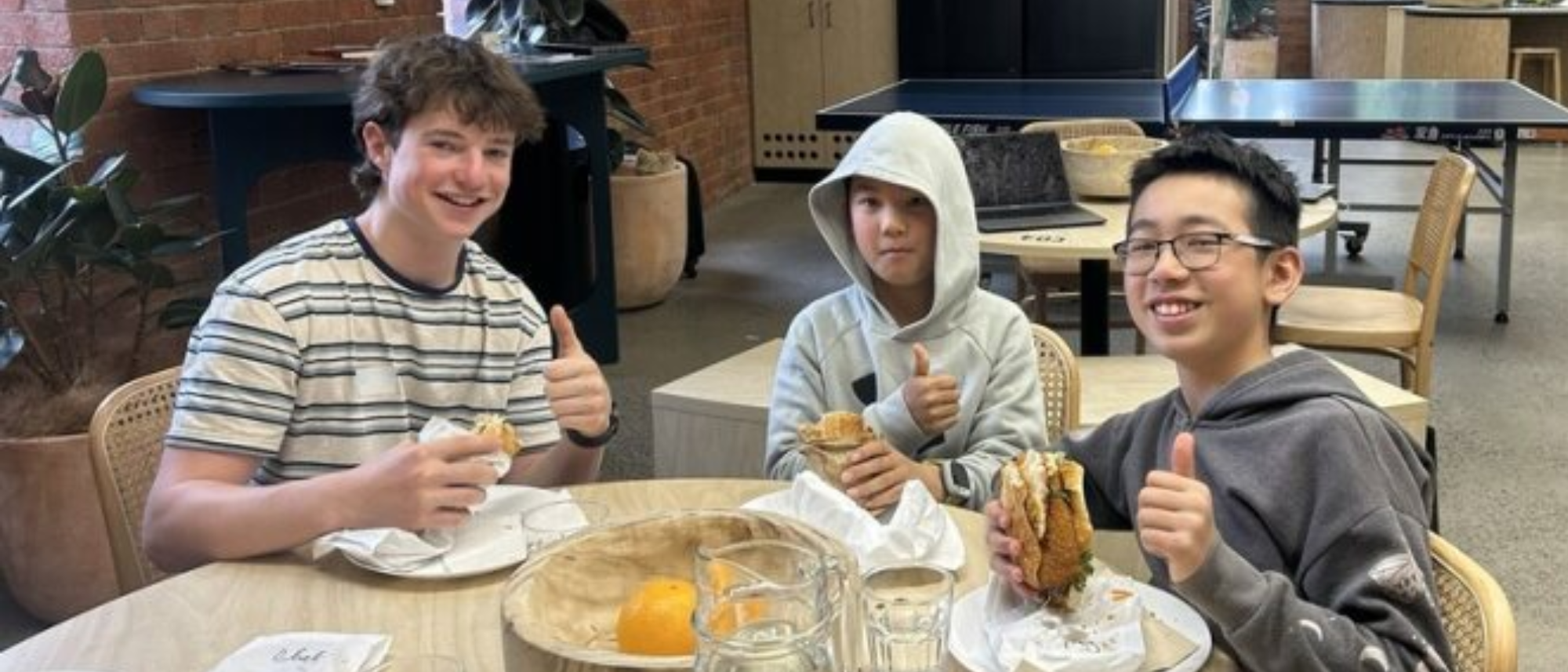The Development of Global Child and Adolescent-Centred Nutrition_Indicators (CAN_I)

Our Vision
Adolescence is a time of rapid change in physical growth as well as a key window of opportunity for healthy nutrition. The Lancet, a world-leading medical journal, has created the Adolescent Nutrition Series, calling for greater focus on adolescent health in national and global policies including stronger data collection systems. Child and adolescent-centred nutrition indicators, with a social and environmental focus, are necessary to address these recommendations. They also help to foster child and adolescent centred self-efficacy and agency in nutrition policy.
Child-centred indicators differ from standardised quantitative nutritional indicators, such as anthropometric measures and dietary scores. They create a qualitative measure allowing for richer, deeper, and more nuanced understandings of children’s nutritional experiences over time. Aligning with SDG 2, our vision is that these novel indicators will help reduce malnourishment by optimising nutrition delivery to young people across the world.
CAN_I Summary video by Young and Resilient Research Centre
Our Project Plan
The overarching aim of this project is to collaborate with children and adolescents to co-develop child and adolescent-centred nutrition indicators for implementation in policy and public health programs across the globe. The collection of indicator data will take place via a global digital platform. To do this, the project will undertake three phases:
Phase one: Youth Advisory Group
This completed phase of the project brought together a youth advisory group, with six young people, aged 12-18. They shared their knowledge, insights, experiences and perspectives on food and nutrition. They participated in two one-hour online workshops via Zoom and completed activities on Google Jamboard. The responses and feedback from these activities informed the second phase of the project.
Phase two, stage one: Pilot Australia workshops
The completed pilot workshops saw 37 young people from ages 10-18 take part in one three-hour workshop. Workshops were delivered in both face-to-face and online formats, across New South Wales and Victoria. Participants completed various activities exploring what food and nutrition means to them at home, school and within their communities. The participants also shared their perspectives on food systems, food insecurity, body image and influences on food choice, as well as their digital platform preferences and what they would like to see in a nutrition-based app.
Phase two, stage two: Indicator Development
Phase two is currently in progress. The data collected from the first stage of phase two is being analysed for key themes and areas of focus and concern for young people. These critical themes are creating the foundations for indicator development. The draft indicators will then be refined and co-designed with consultation from young people and leading global adolescent nutrition experts.
Phase three: Global digital platform
Using the data from stage one of phase two, a digital platform will be developed that acts as a data collection tool. The platform will capture and evaluate information provided from users in real time in relation to the finalised set of indicators.
Project History
The project stems from a collection of works previously conducted in the global youth nutrition space by Dr Fleming and Professor Third, involving over 1,300 young people aged 0-18 years across 30 countries. A distributed data-gathering process used previously in a range of international, child-centred research and child consultation projects was first applied to the nutrition setting in partnership with UNICEF for the 2020 State of the World’s Children reports which examined adolescents’ and mothers’ experiences of food and nutrition.
The ‘Fix My Food: Children's Views on transforming food systems’ was a global partnership with UNICEF International and Y&R to better understand children’s views and perspectives on their food systems, key challenges they experience in attaining nutritious, safe, desirable, and sustainable food, and how children want food systems to change. The project saw over 700 children and adolescents from 20 countries participate in voicing their perspectives on food, food environments, food practices, and the transformation they wish to see in their food systems. The rich and meaningful data from this project was presented to the UN Food Systems Summit 2021 to help identify efficient and effective ways to build strong and equitable food systems to accelerate international efforts to achieve the Sustainable Development Goals.
What Impact will this research have?
With 1.3 billion adolescents (10-19 years) globally it is critical that investment is made in achieving global targets for Nutrition and Sustainable Development Goals. The novel child and adolescent-centred nutrition indicators provide a mechanism to drive youth-centred change in nutrition policy and practice that work practically alongside existing anthropometric measures, dietary intake measures and biomarkers.
The development of child-centred indicators allows for measurement of not only growth and micronutrient sufficiency using traditional data capture methods, but for capturing critical information surrounding a child’s perceptions and impacts of their food environments, systems, and security.
Child-centred indicators allow for the investment of young people’s voices to be placed at the centre of their own nutritional outcomes. The development of solutions for food environments, systems and inequities are focused on their voices, and they begin to develop self-efficacy and greater agency to empower change within their communities and shift the narrative of historically predetermined health outcomes.
Outputs
Collaboration team
Internal
- Dr Catharine Fleming
- Professor Amanda Third
- Professor Robert Gorkin
- Ms Stephanie Hannah
- Miss Alexi Cross – Youth member
External
- Christina Zorbas VIC Health and GLOBE at Deakin University
- Stephanie Wrottesley, Senior Nutritionist, Emergency Nutrition Network (ENN)
Funding
This project has been funded by the Young & Resilient Research Centre, the School of Health Science at Western Sydney University, WSU Research Theme Champion Funding and the Translational Health Research Institute (THRI) at Western Sydney University.
Streams
Period
October 2022- present
Contact: If you would like to get in contact with the CAN_I team, please email Dr Catharine Fleming at Catharine.Fleming@westernsydney.edu.au
